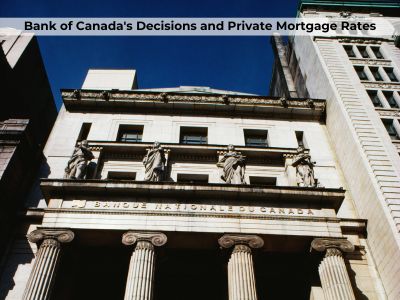Breaking your five-year fixed-rate mortgage may come to you as your means of saving money in the long run. You shorten your mortgage loan term, you immediately settle the loan, and you finally start anew with a fresh supply of capital in your bank account.
Fantastic!
But is it worth your effort and your invested money? Unfortunately, the answer to this question is, “No. It isn’t.”
We are going to briefly discuss the nuances of breaking your fixed-rate mortgage and how this will affect your overall finances afterward.
Be forewarned that this topic is more on the technical side of mortgages (i.e. math-based) instead of the theoretical side (i.e. home equity, credit score, etc.).
Do not worry because we will make this topic easy for you to digest and understand. No need for you to become a rocket scientist or be a protégé of MacGyver™ to get along.
If you are ready then read on…
Fixed-Rate Mortgage Defined:
In a nutshell, a fixed-rate mortgage is either a commercial or a personal loan that carries a non-variable interest rate for the duration of the loan term.
This connotes that the borrower will pay a specific amount on the mortgage based on this non-adjustable interest rate and will settle the entire contract on a specific date stipulated in the mortgage agreement.
To simplify this further, we are enumerating four key points regarding this type of mortgage rate plan:
a. Fixed-rate mortgage=fixed interest rate on loan contract’s entirety
b. Interest rate is not affected by economic fluctuations
c. Most preferred among borrowers who favor long-term mortgage agreements
d. Fixed-rate loans=amortized (equal) payments (depends on the term agreement)
Breaking Your 5-Year FMR:
Most home buyers who are both financially challenged and first-time house buyers may consider this route their easy way out from paying monthly amortization. Moreover, they consider this as their first-time homeowner’s incentive without realizing the consequences that this move will bring them.
Breaking your 5-year fixed mortgage rate based will not pose any problems on your side. In fact, settling your mortgage loan earlier than the term stipulated in your agreement is a welcome thought to consider.
However, businesses always constitute two parties and, in your case, the mortgage agreement involves both the mortgagor and the mortgagee, respectively.
The mortgagor is the borrower (YOU) while the mortgagee is the creditor (BANK or LENDER). The latter is the party that will suffer from the early settlement of the mortgage loan because the time intended for the credit extended to earn interest was abruptly closed or paid in full.
What does this mean?
This means that the financial institution or lending company that provided credit will have to adjust its interest computation to avoid a loss.
Since the contract was “breached” technically, specific countermeasures are implemented immediately to supplant unearned income from the sudden break in the fixed-rate mortgage contract and this is where penalties come in.
Be always mindful, however, that this is a requirement that all lending corporations and agencies have to put into effect. This should not be misconstrued as a procedure that is done to subterfuge the best mortgages in Canada by any or all means.
In fact, penalties are enforced to protect your interest – that is, your investment is covered by lending corporations and agencies by making sure your property will not suffer from occasional to sudden interest rate movements should these arise in the future.
Consider the interest rate as your property’s own distinct insurance policy and rest assured that your house is in the best hands.
Supporting Example:
Let us assume the following scenario:
Amount of mortgage = $250,000.00
Term = 5 years
Interest Rate = 2.59% fixed
Condition = Break up FMR after 3 years
We first compute for the interest cost on the first 3 months of your 5-year term:
I=PRT or Interest=Principal x Interest Rate x Time (term of the loan)
Substituting values, we get the interest amounting to $1,619.00 or:
$250,000.00 x 2.59% x 3/12 = $1,619.00 (penalty to settle)
Since you decided to break your existing FMR, a corresponding penalty – known as IRD or interest-rate differential – will be introduced as your “break-away fee” you have to settle prior to the closing of your mortgage contract.
There are three IRD classifications and these are as follows:
a. Standard IRD Penalty
b. Discounted IRD Rate Penalty
c. Posted Rate IRD Penalty
We will discuss these three in much greater detail in our subsequent blogs. Watch out for it!
What makes it interesting to know about these different IRD penalties is that they are mandated by law and treated as federal government first-time home buyer programs in Canada and these penalties are exercised by banks and lending agencies that extend mortgage loans to first-timers in the real estate market.
This is not a deal-breaker; however, these penalties also serve as your creditors’ means of instilling discipline and responsibility in the management of your monthly amortization payment: stay within the plan and you are golden.
Final Thoughts:
Breaking your fixed-term mortgage rate can be done but is not advisable since this will require you to pay a hefty interest rate. Your interest rate is directly proportional to your mortgage loan; hence, the bigger the loan amount, the heftier the interest to shoulder.
If you are a first-time house buyer and you would like to shorten the life of your term by breaking your stipulated fixed mortgage rate then we suggest that you speak with a reputable mortgage advisory service professional beforehand.
Your decision will weigh heavily on your investment. If you are only starting out then it is best that you let your mortgage term run its full course to avoid penalties that you may regret in the future.
We are your trusted mortgage solutions experts based in Canada founded by Faizal Garasia in 2019. We have access to more than 90 lenders including the largest banks, credit unions, trust firms, and financial institutions across Canada.
We help you understand and resolve issues regarding mortgages, finances, taxes, and other loan-related payments that impact your real estate plans.
Contact us at (416) 825 0142 or send an email to faizal.garasia@dominionlending.ca today for more information.




